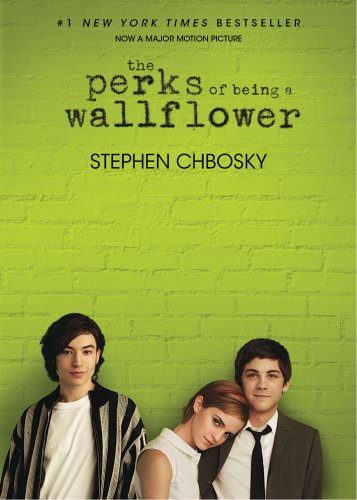All Nonfiction
- Bullying
- Books
- Academic
- Author Interviews
- Celebrity interviews
- College Articles
- College Essays
- Educator of the Year
- Heroes
- Interviews
- Memoir
- Personal Experience
- Sports
- Travel & Culture
All Opinions
- Bullying
- Current Events / Politics
- Discrimination
- Drugs / Alcohol / Smoking
- Entertainment / Celebrities
- Environment
- Love / Relationships
- Movies / Music / TV
- Pop Culture / Trends
- School / College
- Social Issues / Civics
- Spirituality / Religion
- Sports / Hobbies
All Hot Topics
- Bullying
- Community Service
- Environment
- Health
- Letters to the Editor
- Pride & Prejudice
- What Matters
- Back
Summer Guide
- Program Links
- Program Reviews
- Back
College Guide
- College Links
- College Reviews
- College Essays
- College Articles
- Back
The Perks of Being a Wallflower by Stephen Chbosky
The Perks of Being a Wallflower by Stephen Chbosky at first glance does not differ much from other angst-filled teen literature. A lonely, depressed boy has trouble fitting in at his high school until a girl he falls in love with changes his life. Knowing this much, I had very low expectations, and little interest in reading it. While flipping through the channels at a friend's house, we ended up watching the second half of the cinematic version. Immediately intrigued, I borrowed a copy of the book the next day, which I later finished that evening.
Perks is not the usual coming-of-age novel that I am accustomed to skipping over. The themes of the story do not concern the typical high school 'drama' (I put such a word in quotations, because even mentioning the word in such context is a juvenile pet peeve of mine) of Disney Channel-style plots set in a G-rated environment. Charlie, the story's protagonist, finds himself in a depressingly realistic world. Chbosky includes controversial topics such as underage experimenting with drugs and alcohol and sexual encounters that many writers for young adults seem to leave out to make school-appropriate, or other such reasons. I believe that censored novels written to provide hope and boost the spirit of troubled youth have little effect on their targeted audience, because in order to please critics, the authors typically create an unlikely or incomplete problem for their characters to solve. For example, an unstable sixteen year-old boy with little interest in reading as is will not be uplifted by the tale of someone who overcomes a bully and gets the prom date of his dreams, while in reality he is fighting off peer pressure and worrying about the possible pregnancy of his girlfriend. Charlie finds himself overcoming problems at home, school, and in his social life, but not without making a few real mistakes along the way that readers can relate to, and rejoice when he makes sense of his situations and works his way through them.
Of course, the 'sex, drugs, and rock n' roll' content of the novel is not the only appealing aspect. The story, cleverly written as a regurgitation of Charlie's thoughts into a journal, is divided into letters Charlie sent to you, the reader, weaved into the story as a nameless classmate. This provides a view into Charlie's thoughts, which are confused and uncertain, but often insightful and fascinating. “I am very interested and fascinated how everyone loves each other, but no one really likes each other,” he writes one day. Throughout the story, he discusses his philosophies concerning the ways of his peers and the world, as well as quoting those around him, such as his witty and intelligent English teacher, Bill. “Sometimes people use thought to not participate in life.” Bill tells Charlie, who had become quite close with him, when speaking of Charlie's awkwardness with others. I found myself realizing that nearly every situation, every thought process that Charlie has through out the novel, I had experienced as well to an extent. As I continued reading, I affirmed this thought by coming across a passage that Charlie begins, “It's strange because sometimes, I read a book, and I think I am the people in the book.”
Chbosky's novel restored my faith in modern coming-of-age tales. I recommend it to anyone who is looking for hope, a reminiscence of what it is like to grow up, or simply insight on some of the perks of being a wallflower.
Similar Articles
JOIN THE DISCUSSION
This article has 0 comments.

